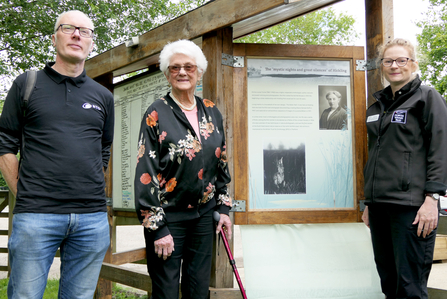The new interpretation panel acknowledges the contributions made by innovative Edwardian naturalist, author and photographer Emma Turner, and was unveiled outside the Hickling Broad visitor centre earlier this month. The unveiling was attended by staff from Norfolk Wildlife Trust and British Trust for Ornithology (BTO), alongside guest of honour, Julia, a relative of Emma Turner.
Emma Turner spent years exploring and documenting the birds of the Norfolk Broads in the early part of the 20th century. She famously lived and worked for lengthy periods in her self-designed houseboat, named the ‘Water Rail’ on at Hickling Broad, now part of a 600-hectare nature reserve.
Among her many achievements was the discovery of a fledgling bittern in 1911, proving that the species which had been lost as a breeding bird in the 1880s was once again nesting successfully in the Broads.
As well as being a renowned photographer, Emma Turner was a prolific writer and contributed many articles to journals and magazines, also authoring several books.

